“Never before has an electric vehicle been conceived with such a global outlook.” That’s how Ralf Brandstätter, Volkswagen’s new CEO, introduced the ID 4 before our first drive of a near-to-production-ready prototype – and he is nothing but bullish about its mainstream market ambitions.
The second model from VW’s electric-only ID sub-brand sits in the world’s fastest-growing segment and will be built in five factories on three continents, starting at its Zwickau plant in Germany, from which right-hand-drive UK versions will begin rolling later this year. “The ID 4 will have a big impact in each of our three most important markets – Europe, China and North America,” said Brandstätter. “We see the potential for significant volumes.”
As well as being key to VW’s aim to sell up to 1.5 million EVs annually by 2025, the ID 4 also forms the basis for upcoming siblings such as the Audi Q4, Cupra Tavascan and Skoda Enyaq.
Like the smaller ID 3, it’s based the MEB electric car platform and will be sold with a range of power outputs in rear- and four-wheel-drive guises and two battery sizes. There are four initial rear-wheel-drive models, with a 146bhp, 168bhp, 173bhp or 201bhp motor. The lower-powered two have a 52kWh battery, the other two a 77kWh battery.
A pair of four-wheel drive models will arrive in 2021. They’ll use the 77kWh battery and two electric motors – a smaller one up front and a main unit at the rear, developing a combined 262bhp or, in a yet to be confirmed GTX-badged range-topper, 302bhp.
Volkswagen says the 77kWh battery gives a WLTP range of up to 323 miles in mid-range 173bhp rear-wheel-drive guise. This compares with 301 miles for the 64kWh Hyundai Kona Electric and 336 miles for the 62kWh Telsa Model Y.
Although our prototype carries light disguise, the ID 4 holds true to the look of the 2017 ID Crozz concept. It’s contemporary looking, with heavy crossover tones and unmistakable electric vehicle proportions. With a 0.26 drag co-efficient, it’s also among the most aerodynamic SUVs.
VW offers two charging options. The 52kWh battery can be charged at up to 100kW, the 77kWh battery at up to 125kW. As a guide, VW says 30min of charging provides up to 199 miles on the more powerful system. In most cases, you’ll have to pay for the privilege, though. The base model supports 50kW charging as standard.
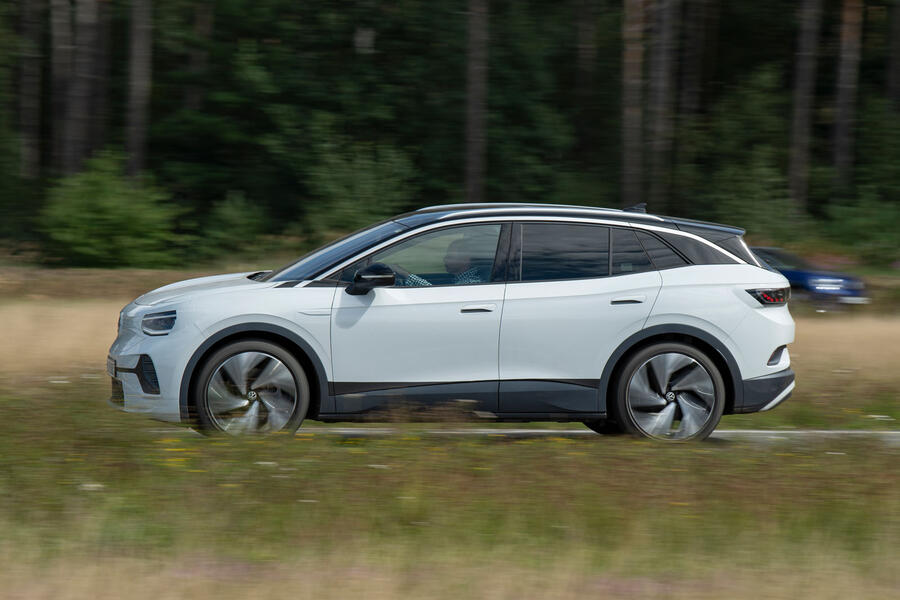

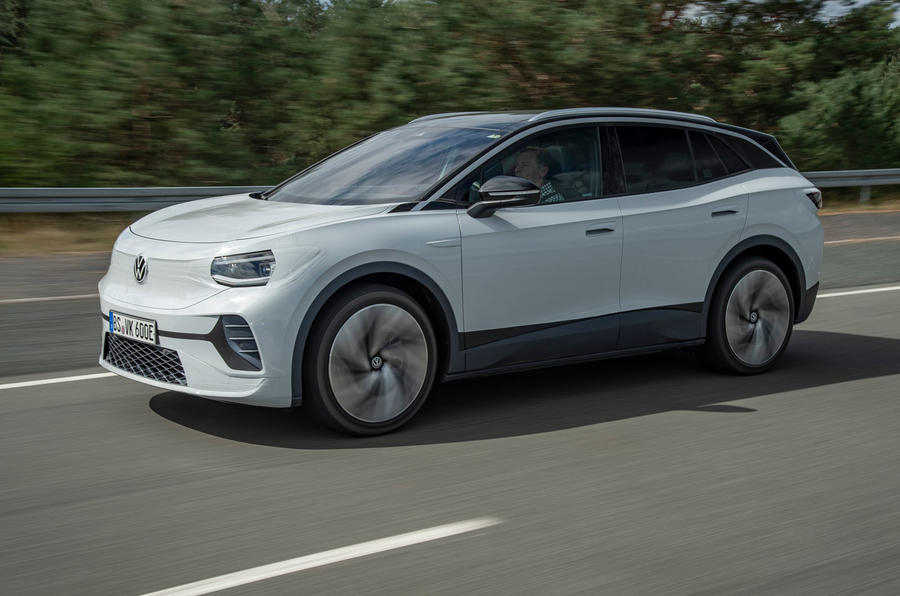














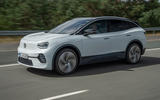















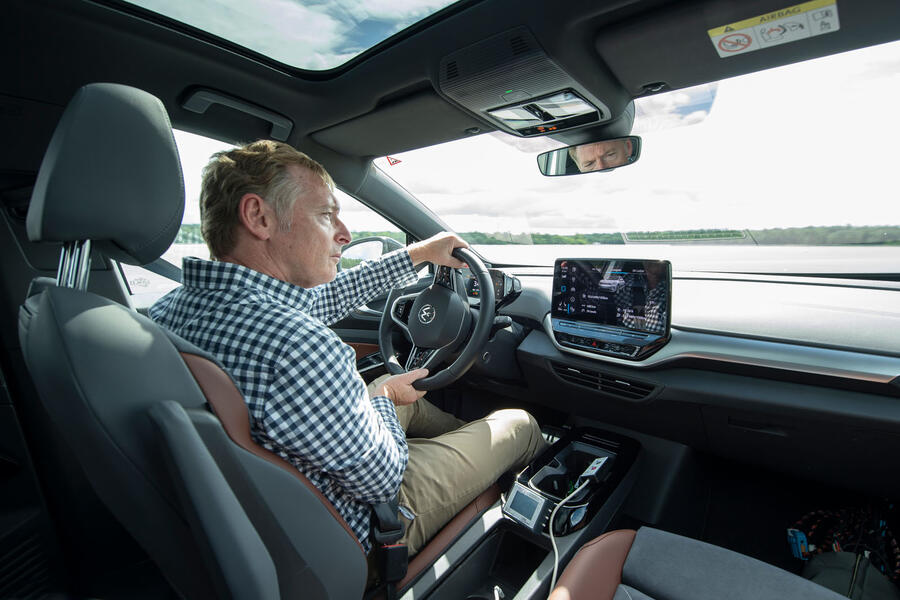
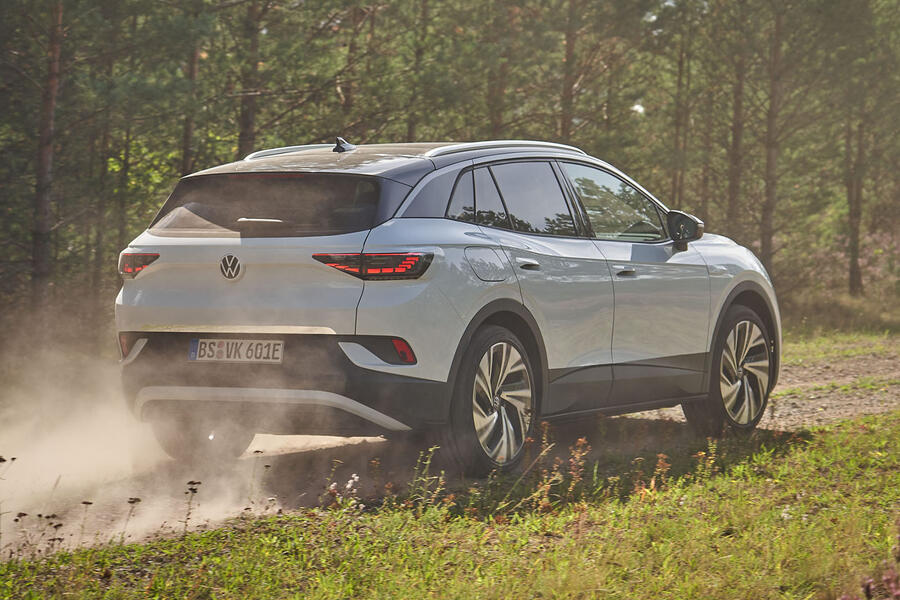


Join the debate
Add your comment
Just wondering, with so many
Sorry but
it looks like it was designed by comitee, with bits from Pug, Lynk and Co and Ford for good measure,if it was Chinese we would be screaming about copycat designs, the interior could very easily lifted from the latest Focus.
peugeot
I make up to $90 an hour